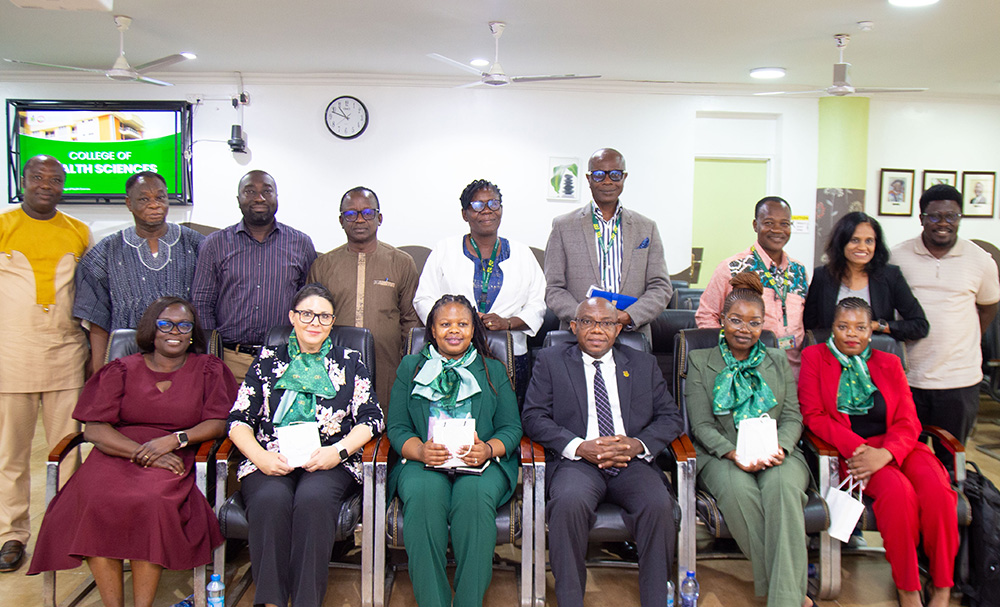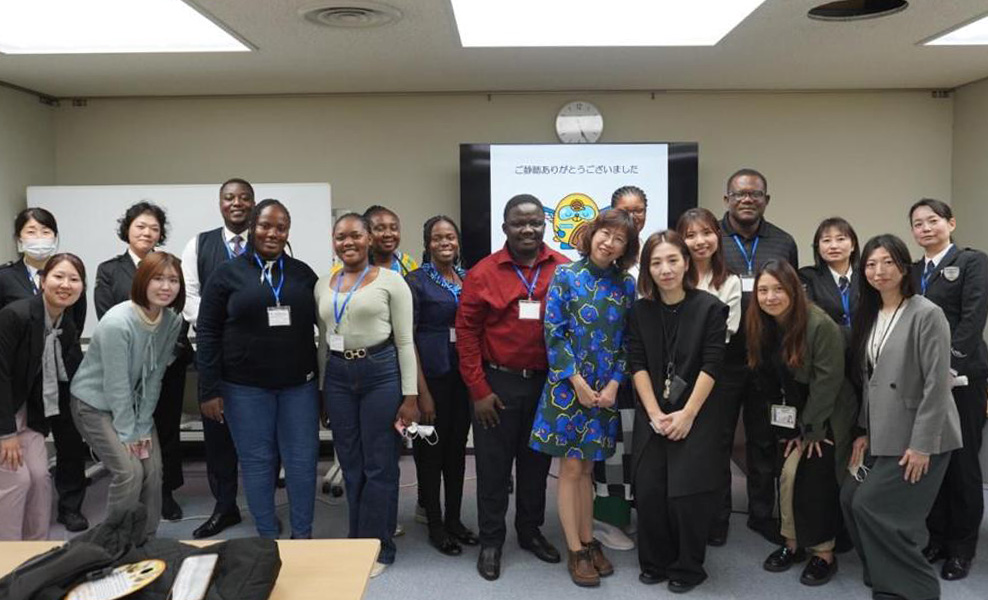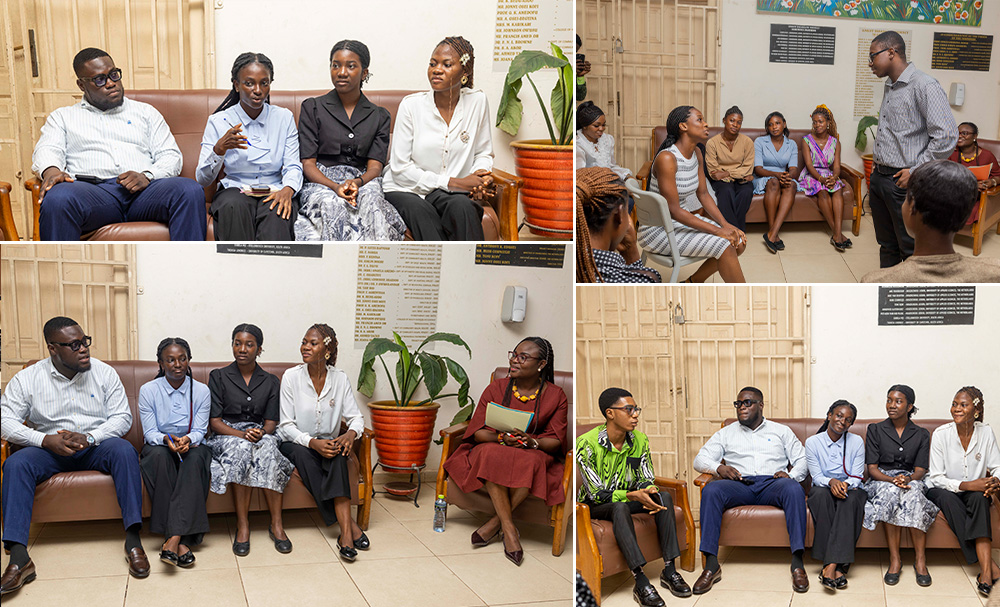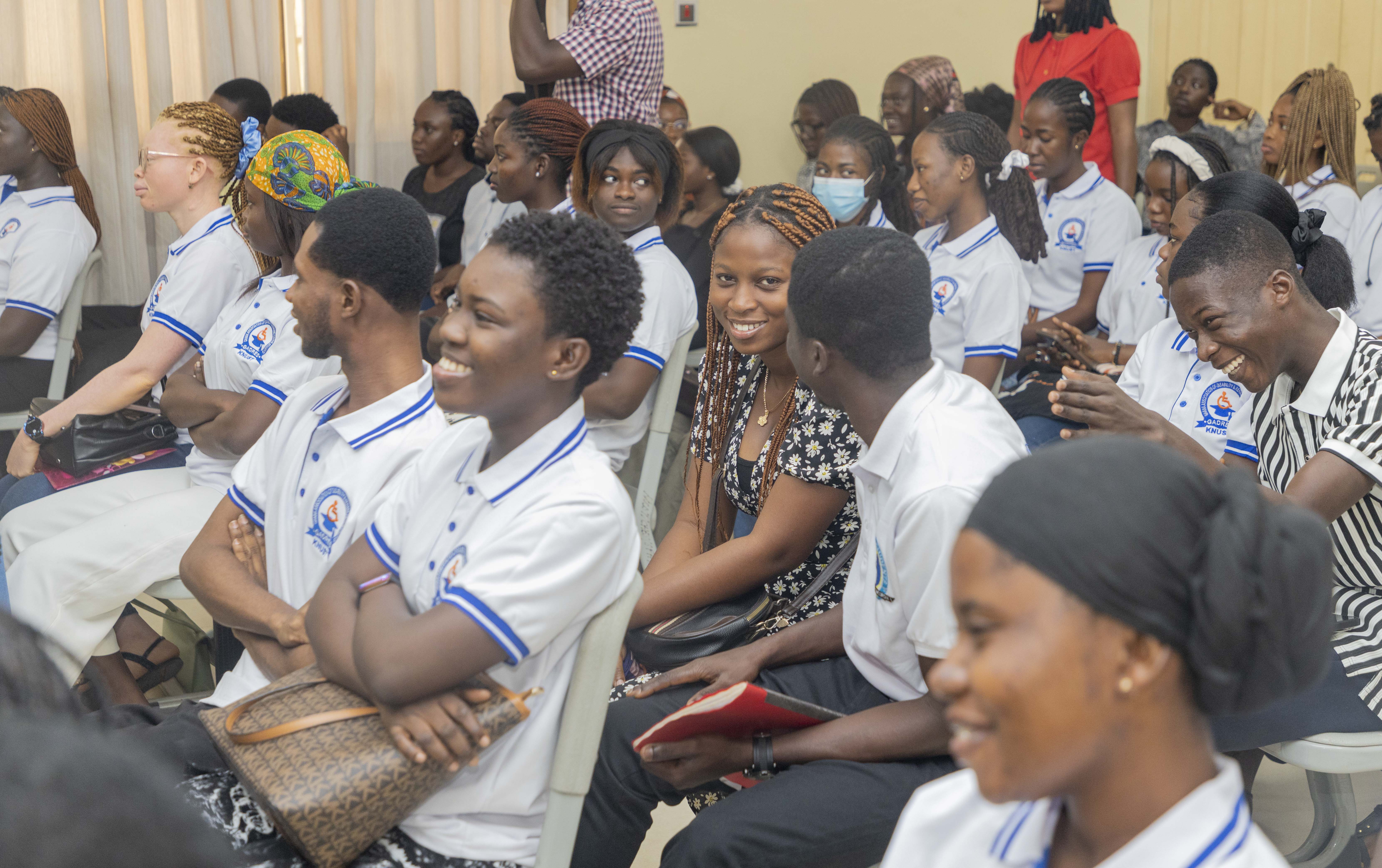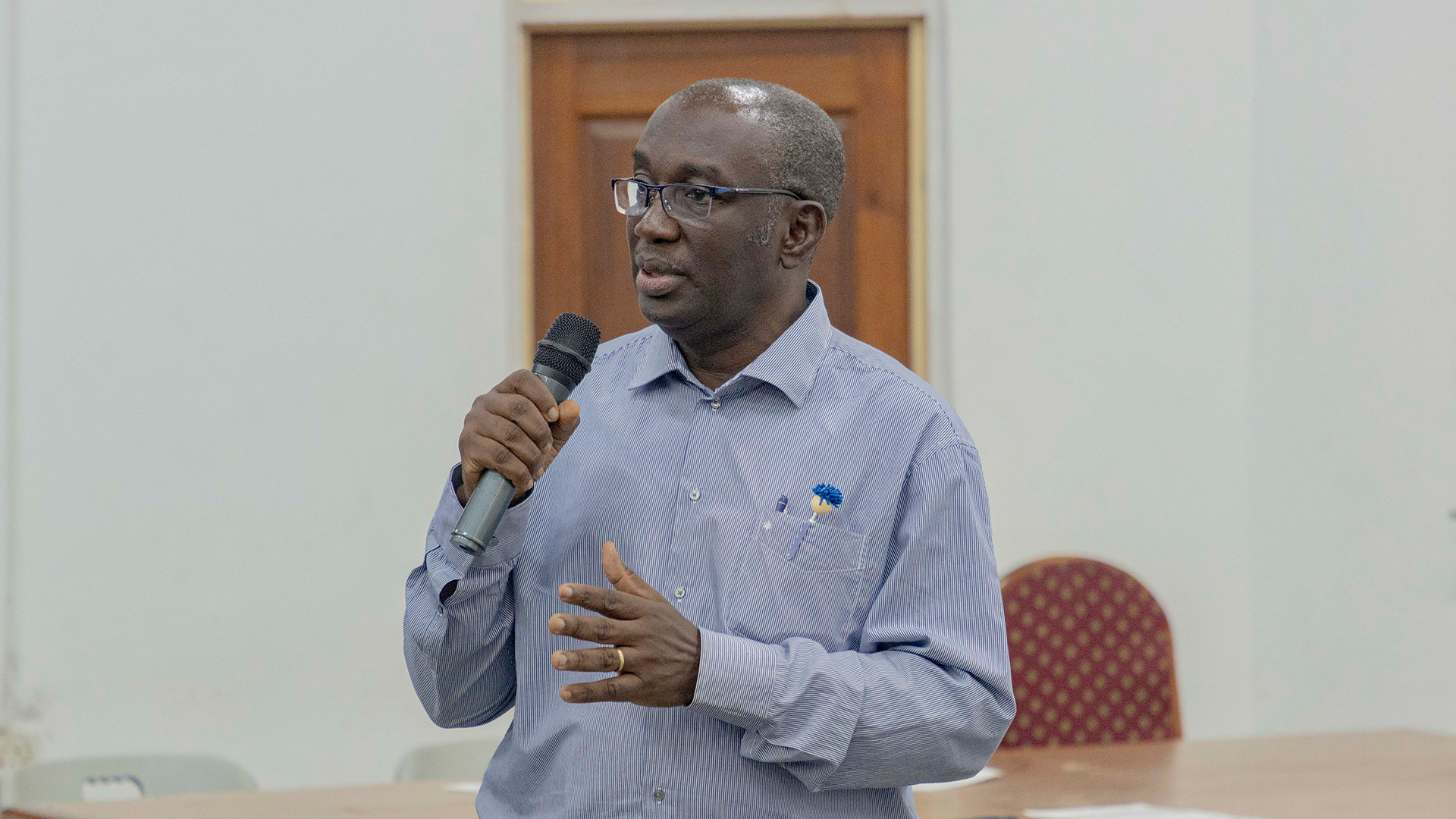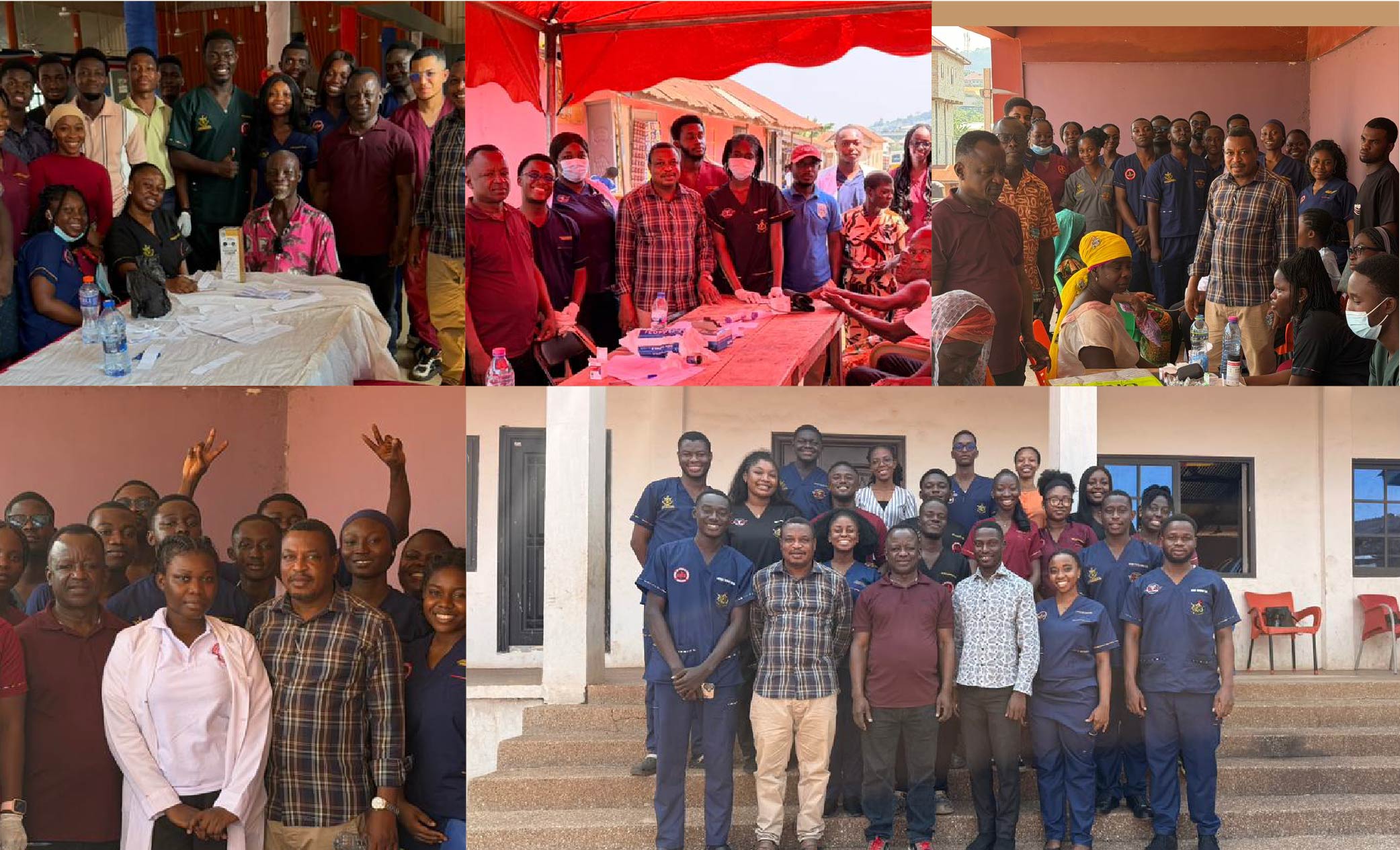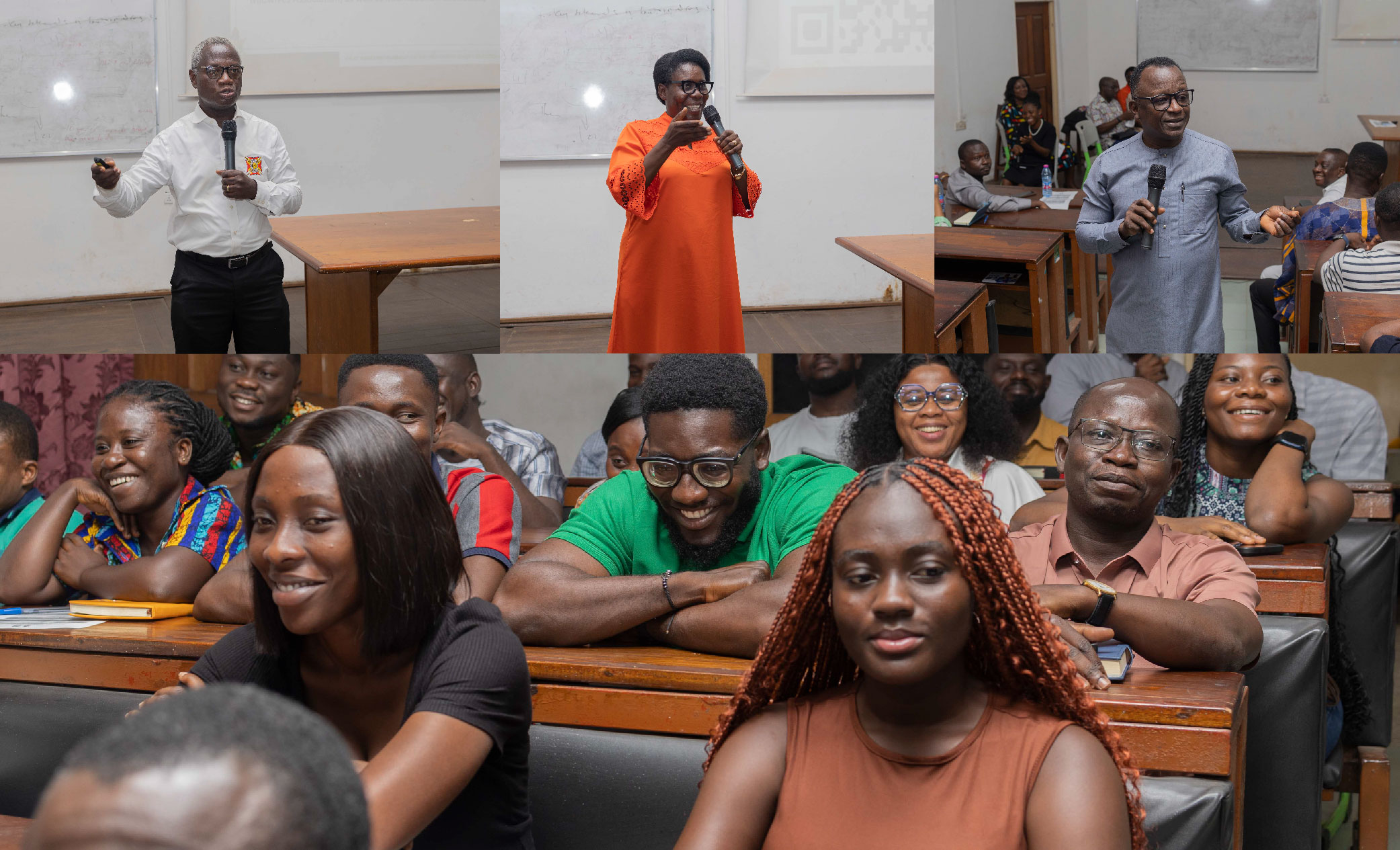The School of Public Health (SPH) at the Kwame Nkrumah University of Science and Technology (KNUST) has hosted a delegation from the Hypertension in Africa Research Team (HART) of North-West University (NWU), South Africa.
The visit marks a significant step forward in advancing academic and research collaborations between the two institutions, particularly in tackling hypertension and other non-communicable diseases (NCDs) across the continent.
The delegation, led by Associate Professor of Physiology and Head of HART, Prof. Lebo Gafane-Matemane, included Dr. Felicia Maugana, Sr. Adele Burger, and Ms. Nonkululeko Navise.
The primary objective of the visit was to formalize ongoing collaboration through signing a Memorandum of Understanding (MoU), expand the scope of student and staff exchanges, and identify funding opportunities to sustain joint activities.
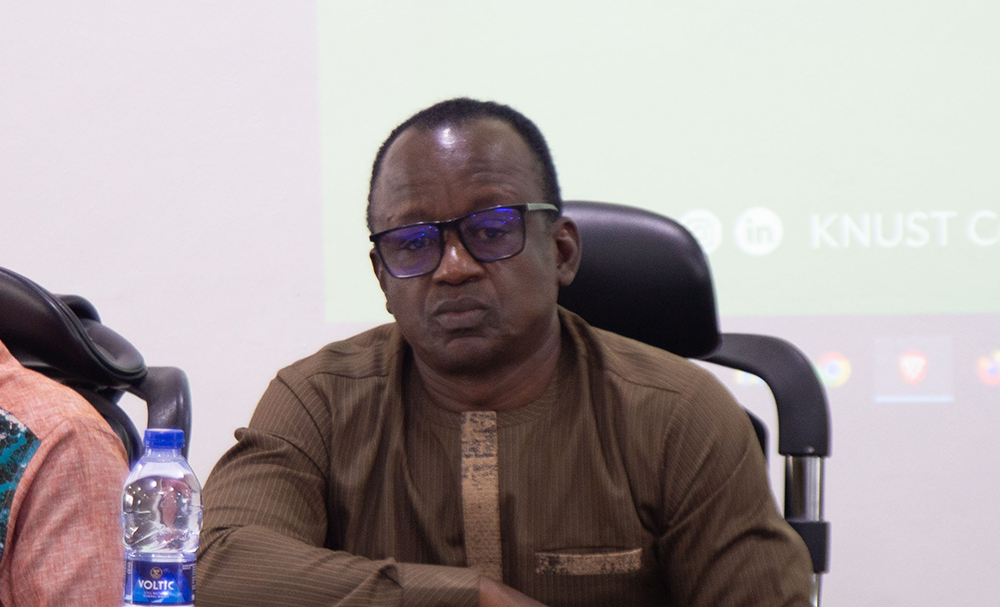
Welcoming the delegation, Dean of the School of Public Health, Professor Peter Agyei Baffour, outlined the foundation of the collaboration and the shared vision for growth. “The SPH, through Dr. Daniel Boateng and Dr. Arti Singh, has been working with NWU on several projects and research initiatives. We believe the time has come to get things formalised,” he stated.
Dr. Daniel Boateng, a Senior Lecturer at SPH, further explained: ‘We are currently working with them on hypertension in Africa, but we want to move to a level where we are tackling the larger public health challenges that affect the continent.”
Dr. Boateng highlighted that both institutions have co-supervised students over the years, examined theses, and contributed to joint research efforts. The current visit aims to extend these efforts across other departments and colleges within KNUST.
“They have a Centre of Excellence in Hypertension that we can learn from. They came not only to engage with the School of Public Health but also to interact with the wider College of Health Sciences,” he said.
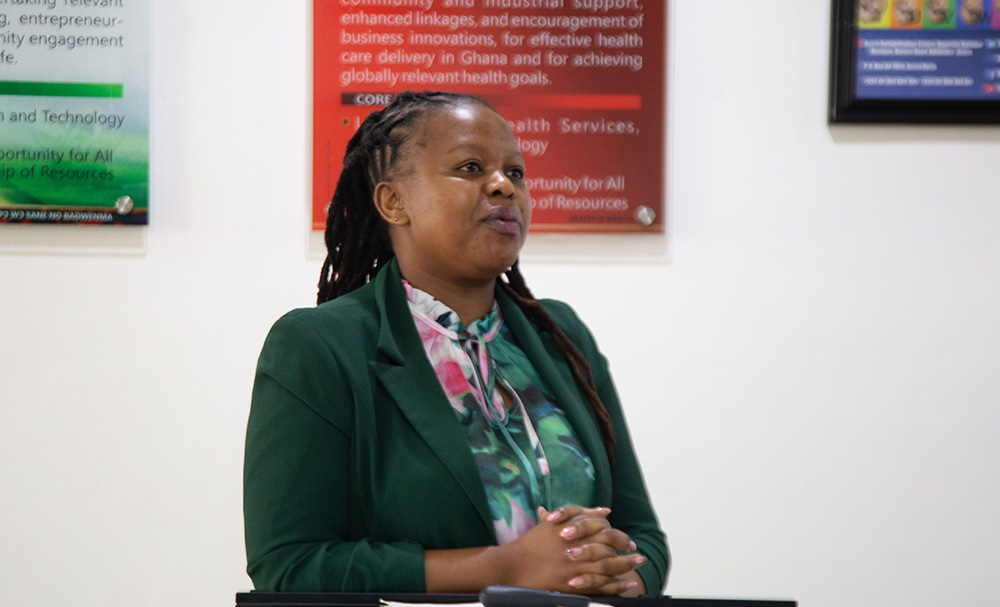
Prof. Gafane-Matemane emphasized the importance of creating sustainable, structured systems for collaboration.
“We believe in cross-supervision and acknowledging the expertise you have in public and global health. Our unit is taking the lead to bring in more African countries, and KNUST is the best place to start.”
She also outlined HART’s medium- to long-term goals, including joint degree programs and capacity-building in medical research. “Something that starts as a collaboration between two people can become something bigger between faculties and universities, and ultimately improve health and science across the continent,” she added.
Provost of the College of Health Sciences, Professor Christian Agyare, offered full support for the collaboration. “We have areas of common interest in research, teaching, and community engagement. Let’s ensure the MoU leads to real implementation and impact,” he said.
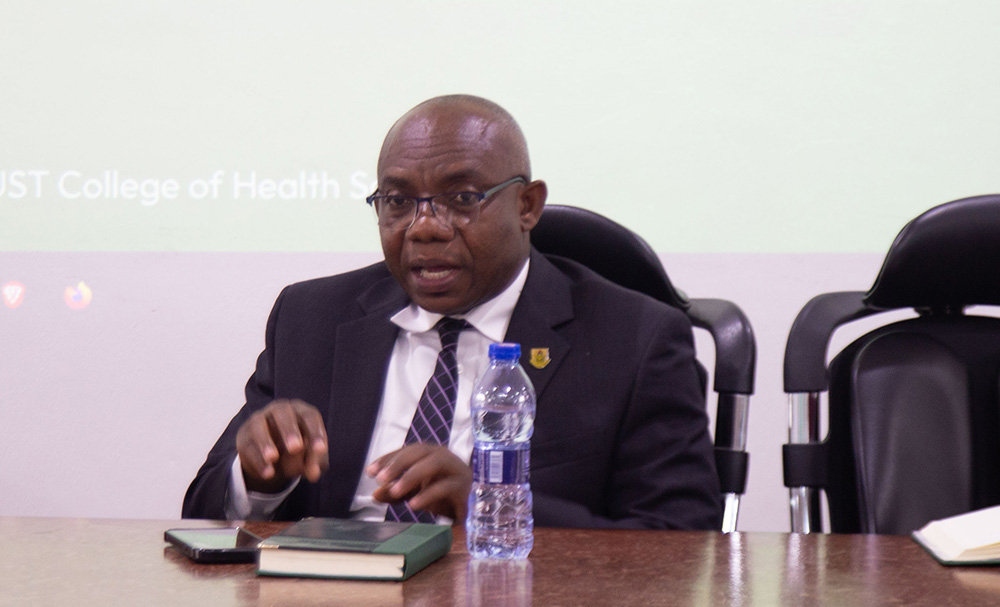
In an engagement with other faculty leaders, Dean of the School of Medical Sciences, Professor Akwasi Antwi-Kusi, expressed strong interest in collaboration on basic sciences. “We are particularly keen to develop PhD programs in partnership with NWU, building on the strengths we have,” he noted.
Similarly, Dean of the Faculty of Pharmacy and Pharmaceutical Sciences, Professor Samuel Asare-Nkansah, reiterated the value of African-owned data. “We want data that reflects our reality, to inform clinical decisions relevant to our context. We are happy to come along in areas like hypertension and chronic kidney diseases,” he said.


